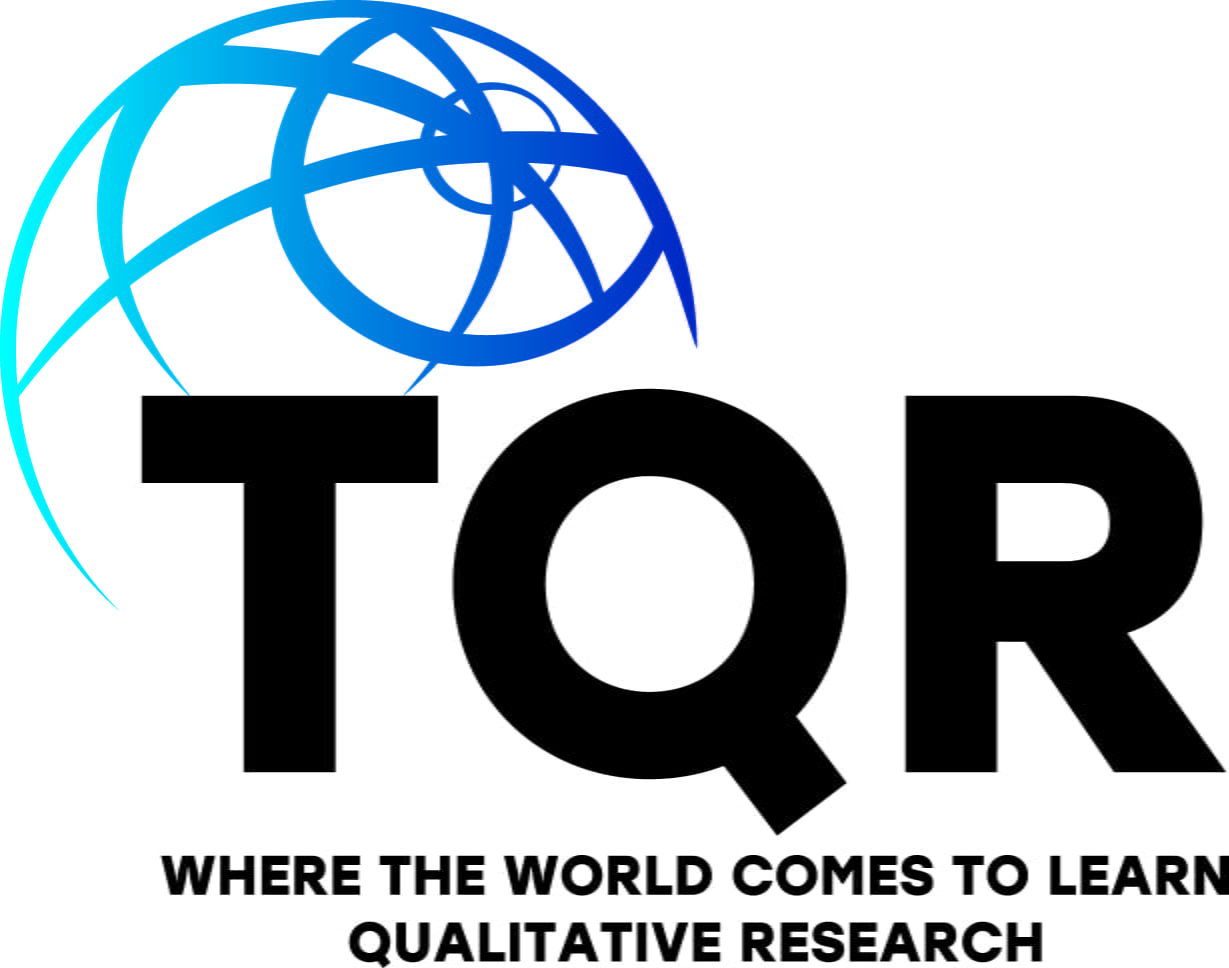The Qualitative Report Weekly
The Qualitative Report Workshop Series (Virtual)
The Qualitative Report 15th Annual Conference
General and Presenter Registration is Now Open for TQR 15th Annual Conference!
The Qual Report Podcast/YouTube Series
Qualitative Research in Education with Marilyn Lichtman
In this podcast, Marilyn Lichtman talks to Marti Snyder about the 4th edition of her book, Qualitative Research in Education: A User’s Guide. The podcast begins with a brief historical context about Marilyn’s experience with qualitative research and TQR. Next, she describes what inspired her to write this fourth edition and what readers can expect. She discusses the various types of qualitative research and what defines quality and rigor as well as current issues in education and how qualitative research methods can be used to address them. Finally, she shares her thoughts about technology and the future of qualitative research.
Featured “Special Issue” Article
African-Centered Psychological Perspective on Happiness
Kopano Ratele, Stellenbosch University, South Africa
Carmine Rustin, University of the Western Cape, South Africa
Abstract
Happiness scholarship has gained prominence in a number of disciplines over the last few decades, including economics and psychology. In South Africa, we have observed an uptick in happiness studies, but also that these studies are mostly using quantitative methodologies. What is missing in nearly all these studies are conceptualizations of happiness from African-centered decolonial psychological perspectives. The main objective in this article is to approach happiness from an African-centered decolonial psychological perspective. The article draws on data from a qualitative study which investigated happiness and gender equality amongst South African women. Convenience sampling was employed to recruit participants. Eleven qualitative individual interviews were conducted with key informants and three focus groups with women who shared their everyday lived experiences of happiness. We draw only from the individual interviews. The interviews were subjected to an adapted, theoretically driven thematic analysis informed by African-centered decolonial psychological interpretations. Whilst we identified four key themes, we report and discuss only two of these, namely: happiness as inter-connectedness and happiness as maintaining a balanced life. The perspective we adopt in this article offers an opportunity to unpack how happiness is inter-connectedness and how happiness is a balanced life. In enmeshing decolonial African-centered perspectives and African feminist psychology, it was possible to not only produce a more situated analysis of women’s happiness but also to center issues of gender and gender inequality within African-centered psychological thought. Potential directions for further contextual and transnational qualitative studies on happiness that incorporate African-centered decolonial perspectives are offered.
Featured “Special Issue” Article
Music for All: An Intervention Project in an Artistic School in Portugal
Davys Moreno, University of Aveiro
Júlia Azevedo, Artistic School Conservatory of Music Calouste Gulbenkian Aveiro, Portugal
Bernardo Lima, School of Arts of the Fortaleza de Valença, Portugal
Nicola Davanzo, University of Milan
Abstract
In Portugal, in 2018, an action-research project began to find solutions so that children with cerebral palsy (CP) could learn music in Arts Education Programmes of Music (AEPM). When conducting the characterisation of the child with CP, which gave rise to the study, and a series of literature reviews to find out what has been done in this area, we came across several works related to different Accessible Digital Musical Instruments (ADMIs) which can be employed by users with different needs. In the present case of the child under study, two of these ADMIs were chosen and used because of the opportunities they offer: Netytar and Netychords. These instruments allowed the child to access an artistic school near their residence after the respective admission test. In the Intervention Project (IP), which lasted six months, we analysed how the entry process was carried out, so we qualitatively studied the music teachers’ field diary records. This situation included several interviews and conversations with the educational community involved. More specifically, the following were analysed: (i) the process of the child’s entry into the artistic school; (ii) the work done by the piano teacher in the first three months of the study; (iii) the curricular adaptations proposed by the music teachers (MTs) of the ensemble and music training class so that the child could fulfil the proposed objectives; and (iv) the arrangements and musical compositions adapted so that the child could fulfil the demands of the school programme. As a result, we noticed that the peers of the child with CP adapted much better to the participation processes in favour of inclusion than the adults involved, probably because among the adults there was fear in the face of a still unknown situation, as is the case of working with a child who accesses information and music teaching unusually. We also noticed the urgent need for specific training and supervision among all involved – MTs, operational assistants (OAs), and parents/guardians (PGs). We were faced with the need for training in minor details such as accompanying the child with CP to move and use the toilet. In other words, it is necessary to prevent and prepare, empowering those involved with a series of skills so that children with special needs can fully and actively participate in this type of education.
Resource of the Month
Journal Reviewer Resources
Created by Ronald J. Chenail
News and Notes
- 20th International Congress of Qualitative Inquiry (QI2024) May 15-18, 2024 (in-person) and May 29-31 (virtual) – Call for Submissions
- TQR Virtual Workshop – Carolyn Ellis and Arthur Bochner – Autoethnographic Storytelling in Qualitative Research (February 9, 2024)
- General and Presenter Registration is Now Open for TQR 15th Annual Conference!
- Using Dedoose to Enhance Collaborative Research (Upcoming Events)
- QualPage: Call for proposals: Awakenings to nonviolence in curriculum and education
- QRCA: Crafting Your Elevator Pitch: Introducing Qualitative Research to Business Leaders
- MethodSpace: Analyzing Qualitative and/or Quantitative Data
- SQIP Virtual Salon November 2023 – “THE USE AND ABUSE OF STORIES: A ROUND TABLE DISCUSSION” (Nov 13 at 11:30am ET)
- Webinar – From Exploration to Analysis: Using MAXQDA along the Research Process (Oct 24, 2023 10:00 AM – 11:15 AM EDT)
Calls for Conferences/Journals/Webinars and Training Opportunities
- General and Presenter Registration is Now Open for TQR 15th Annual Conference!
- MAXQDA Workshops and free Webinars in October 2023-February 2024
- The Second Conference of the European Association of Qualitative Researchers in Psychology – Call for Submissions (Deadline: October 30, 2023)
- Researchware Webinars for HyperRESEARCH for May – November 2023
- 2024 Annual Meeting of the Philosophy of Education Society – Call for proposals (Deadline: November 1, 2023)
- Public Opinion Quarterly – 2025 Special Qualitative Issue – Call for Papers (Deadline: December 4, 2023)
- 20th International Congress of Qualitative Inquiry (QI2024) May 15-18, 2024 (in-person) and May 29-31 (virtual) – Call for Submissions
- Call for Collaborative Institutions: Graduate Student Qualitative Methods Network (GSQMN)
- We are seeking new energetic and dedicated reviewers to join The Qualitative Report’s (TQR) Editorial Board!
Employment Opportunities
- Analyst, Assessment – Tulane University
- CLA Ross-Lynn Postdoctoral Fellow – Purdue University
- Director of Community Research & Evaluation – Weber State University
- Evaluation Development Analyst – San Diego State University Research Foundation
- Fellow, Post Doctoral – University of Missouri
- Full Professor, Measurement & Evaluation in Schools – Binghamton University
- Institutional Research Analyst – Newberry College
- Manager Research Project A – University of Pennsylvania
- Predoctoral Fellow – Harvard University
- Qualitative Research Specialist (Clinical Research Specialist) – Indiana University Purdue University Indianapolis
- Research Data Analyst Associate -Northwestern University
- Research Faculty – Concordia University Chicago
- Survey Researcher (6262U) – Transportation Sustainability Research Center – University of California, Berkeley
- UI/UX Designer – Texas State University

